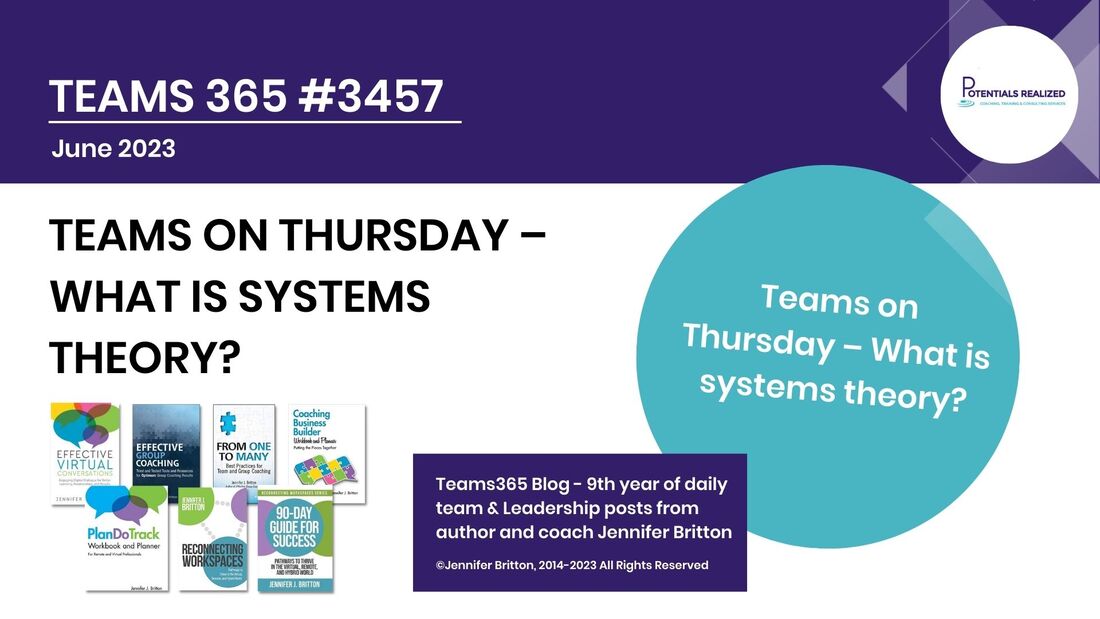Systems theory for teams is an approach that views a team as a complex system composed of interconnected and interdependent parts. It recognizes that the functioning and effectiveness of a team cannot be understood by examining its individual members in isolation, but rather by understanding the interactions and relationships among the team members and how they collectively contribute to the team's overall performance.
In systems theory, a team is seen as a dynamic entity that is influenced by both internal and external factors. It emphasizes the interplay between various elements, such as team structure, communication patterns, roles, and processes, and how they shape team dynamics and outcomes. Systems theory helps in understanding the team as a whole, rather than focusing solely on individual actions or behaviors.
Key concepts of systems theory for teams include:
- Interdependence: Recognizing that team members are interconnected and rely on each other to achieve common goals. Actions or changes in one part of the team can have ripple effects on other parts of the team.
- Feedback: Understanding that teams receive feedback from their environment, including stakeholders, clients, or other teams. Feedback can be used to assess performance, identify areas for improvement, and make necessary adjustments.
- Emergence: Acknowledging that the team's behavior and performance may emerge from the interactions and relationships among team members. It emphasizes the importance of studying patterns and processes rather than just focusing on individual behaviors.
- Boundaries: Identifying the boundaries of the team and how it interacts with its external environment. Understanding the team's relationship with external factors and how it impacts its functioning.
- Complexity: Recognizing that teams are complex systems with numerous interconnected elements. This complexity requires a holistic approach to understanding and managing team dynamics.
Systems theory for teams provides a framework for analyzing and improving team effectiveness. It highlights the importance of considering the team as a whole and understanding the interactions and dynamics within it. By recognizing the interconnectedness of team members and the broader context, teams can enhance communication, collaboration, and overall performance.
Potentials Realized |Reconnecting Workspaces | Group Coaching Essentials
Team and Leadership Development | Coaching | Retreats
Follow us on Instagram @ReconnectingWorkspaces
Phone: (416)996-8326
Check out my TEDx talk
Looking to bring your workplaces back together, whether you are remote, hybrid, or face-to-face? Pick up a copy of my new book, Reconnecting Workspaces, at Amazon.

 RSS Feed
RSS Feed





